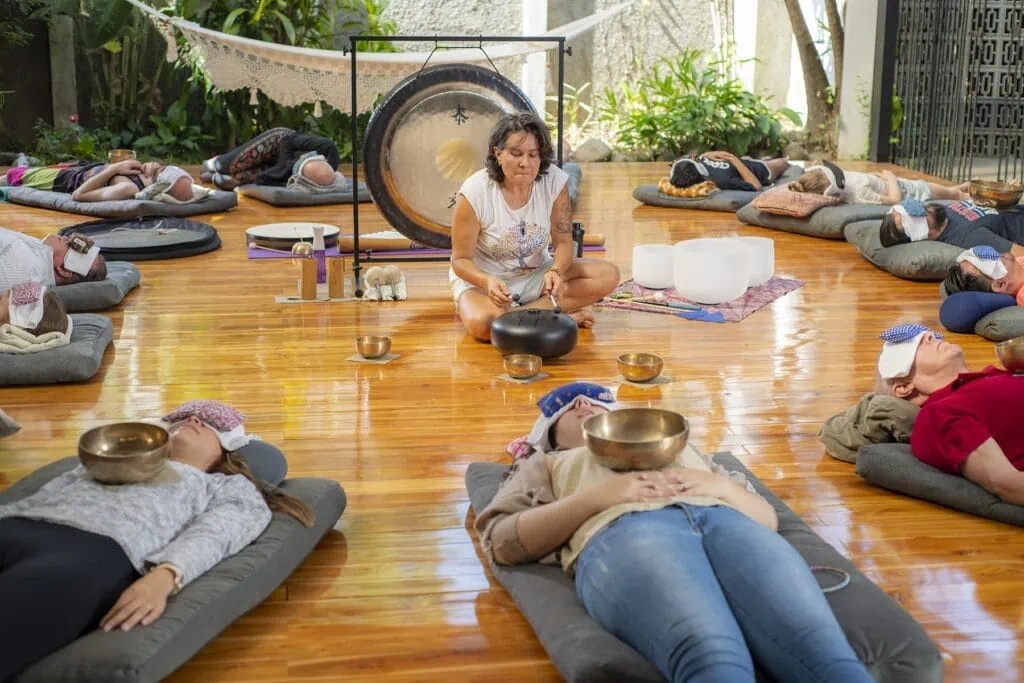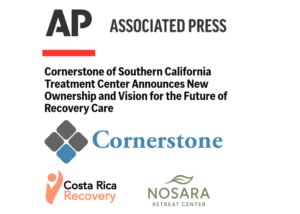Many recovering people use mindfulness to help manage their emotions. What does mindfulness mean, exactly? By definition, it’s an awareness of yourself and your surroundings. It means noticing your thoughts, feelings, and surroundings without judgment. Instead of worrying about the past or future, mindfulness can help you focus on what is happening now. Yet mindfulness is also more than this; it’s a tool for growing and managing life challenges. People often use mindfulness to feel calmer, reduce stress, and improve well-being.
The Origins of Mindfulness
Mindfulness is not a new concept; it’s been around for thousands of years. Ancient Buddhist traditions used similar techniques to develop inner peace and awareness. Inspired by these teachings, a scientist named Jon Kabat-Zinn created a program to help introduce mindfulness to medicine and psychology. The program, called Mindfulness-Based Stress Reduction (MBSR), taught people to use mindfulness to deal with everyday stress, anxiety, and other uncomfortable emotions. Today, many formal and informal programs, videos, and books can help you develop your own skills.
People practice mindfulness in different ways. Some people use it as a meditation technique, where they sit and quietly focus on their breathing. Others use it during outdoor activities, such as surfing, walking, or hiking. Mindfulness can also be used as a part of therapy, helping people manage their emotions and thoughts in a healthier, more positive way.
How Does Mindfulness Help People in Recovery?
For those in treatment for a substance addiction, managing emotions becomes an important skill, especially in early recovery. Mindfulness is a great tool for managing uncomfortable emotions. Activities like mindful breathing exercises or guided meditations that take the participant through a body scan can help people learn to identify and better manage stress, anxiety, and negative thoughts.
Mindfulness can help you confront challenges more positively. By practicing mindfulness, people can feel more in control of their emotions and live a more peaceful life.
Mindfulness: What The Research Says
A deep dive eight years’ worth of data in Frontiers in Psychiatry evaluated mindfulness-based interventions for treating mental health disorders, with a special focus on people in drug treatment. The review concluded that mindfulness can be a good tool for reducing substance use and other addictive behaviors. It also can help reduce depression and anxiety among people with substance use disorders.
Being more in tune with your thoughts and feelings can allow you to make better decisions. Mindfulness helps you take a step back, breathe, and find time and space for more awareness. This heightened awareness can help with a couple of things. It can help people manage cravings, reduce stress, and improve emotional well-being. All of these are important goals for people in recovery.
Mindfulness: When to Use It
There are many scenarios where practicing mindfulness can have a positive impact on your life. Here are some ways to use mindfulness as a healthy coping skill:
- Cravings: Instead of fighting with the thoughts in your head about drinking or using substances, take a deep breath instead. Notice the craving and the physical sensations, such as your increased heartbeat and faster breathing, without reacting. Remind yourself that this, too, will pass, just like a wave in the ocean.
- Stress: Stress can make you want to escape, but mindfulness helps you stay present. Take a moment to breathe deeply, feel your feet on the ground, and focus on what you can control.
- Negativity: When you feel like you’re in a bad headspace, it’s easy to let negative thoughts or feelings snowball. If your mind is telling you that you’re not good enough, or any variation of self-deprecating thoughts, stop and notice those thoughts. Acknowledge them but don’t believe them. Let them pass like clouds in the sky.
- Anger: Anger is a difficult emotion to sit still with. Many people feel like they need to “do something” when they are angry. The next time you feel anger, before reacting, take a pause. Breathe and ask yourself, “What do I need right now?” Mindfulness helps you respond in a way that keeps you on the right path. Maybe you need to practice self-care by taking a bath or going to a meeting.
- Loneliness: Everyone feels lonely from time to time. Instead of getting lost in sadness, bring your attention to the present moment. Notice the sights, sounds, and sensations around you. Remind yourself that you are not alone, even when you feel that way.
- Insomnia: A lot of people, especially in early recovery, struggle with sleep. If your mind won’t stop racing at night, try mindfulness. Focus on your breath, relax your body, and let go of the need to force sleep. Just rest and be present.
- Shame: Many people feel ashamed of their behavior, especially things that happened during their addiction. Recovery isn’t easy, and you might feel guilty about your past sometimes. Mindfulness helps you accept where you’ve been while focusing on where you’re going. You are not your mistakes, but you can certainly learn from them.
These are just a few ways that mindfulness can serve you as a tool in recovery. You don’t have to have a specific reason to use it as a tool, either. You can make it a part of your day and flex your mental muscles. Getting into a good habit always yields positive results.











